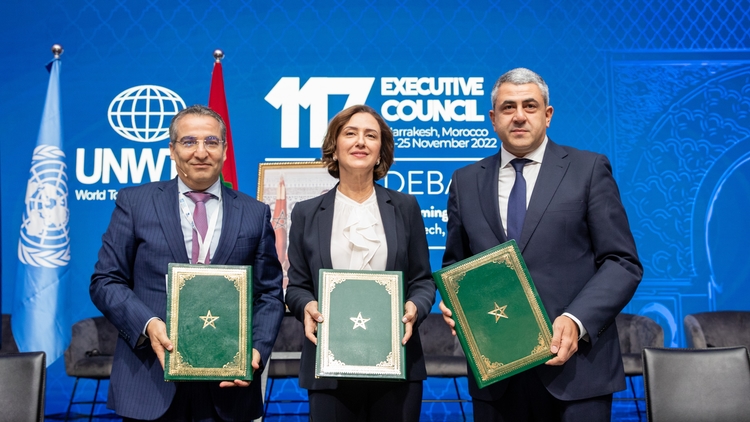Alberto Rubio
Supporting the digitization of small and medium-sized enterprises in the global tourism sector was the focus of discussions during the thematic session “SMEs and Talent: Transforming Tourism,” organized during the meeting of UNWTO Executive Council in Marrakech.
Prior to the start of the session, the Marrakech Call to Action on the Digitization of Small and Medium Enterprises (SMEs) was presented. UNWTO Secretary-General Zurab Pololikashvili and Morocco’s Minister of Tourism Fatim-Zahra Ammor signed a Collaboration Agreement to accelerate the digitization of 10,000 Moroccan small and medium-sized enterprises.
The agreement should also serve as a ‘spearhead’ for its extension to other member states, thus confirming their commitment to accelerate the digital transformation of their tourism SMEs and support their recovery after the crisis caused by the pandemic.
The Moroccan minister stressed during her speech to the representatives of companies and entrepreneurs gathered in Marrakech that “the future of the sector cannot be imagined without digital transformation“. Fatim-Zahra Ammor said she was proud that her country had been chosen to lead this call to action.
For his part, the UNWTO secretary-general added that the ultimate goal is to boost investment in digitization, generate benefits for SMEs and build a more sustainable and inclusive tourism. To achieve this, he said, “we must not lose sight of the fact that, in addition to money, it is necessary to promote competitiveness” and, in this regard, he reiterated UNWTO’s offer to make available to SMEs and entrepreneurs a platform that fosters competitiveness.
Among the companies that participated in the second debate of the day, dedicated to ‘SMEs and the Digital Future’, was the Spanish company Livall, a start-up whose CEO, Manuel Marín, explained why his company decided to produce ‘connected helmets‘ as a response to the mobility challenges that arose after the pandemic.
Marín added that many of their products are already being used, for example by the Madrid City Council”, and that with them they intend to “provide technology to govern all mobility data” and make it “sustainable, but above all safe”.







